
Muhanga: The Gateway to Rwanda’s Heartland
Muhanga, located in the Southern Province of Rwanda, is a captivating blend of historical richness and natural beauty. This city, formerly known as Gitarama, offers a serene environment away from the hustle and bustle of Kigali, making it a perfect retreat for those seeking to explore Rwanda’s cultural and natural treasures. The city is surrounded by rolling hills and lush landscapes, providing a picturesque backdrop for your adventures. Muhanga is also a hub of traditional Rwandan culture, with numerous local markets and handicraft shops where you can immerse yourself in the daily life of the Rwandan people. The friendly locals are always ready to share their stories and traditions, giving you a true sense of the community spirit that thrives here. One of the highlights of Muhanga is the Kabgayi Cathedral, one of the oldest and largest churches in Rwanda. This historical site offers a glimpse into the colonial past and religious heritage of the region. Just a short drive from the city, you can visit the beautiful Nyungwe Forest National Park, home to a variety of wildlife, including chimpanzees, monkeys, and countless bird species. The park's canopy walk and extensive hiking trails provide an adventure for nature enthusiasts of all levels.
Local tips in Muhanga
- Visit local markets early in the morning for the freshest produce and unique handicrafts.
- Hire a local guide to get the most out of your visit to Nyungwe Forest National Park.
- Try traditional Rwandan dishes at local eateries for an authentic culinary experience.
- Respect local customs and dress modestly, especially when visiting religious sites.
- Plan your visit during the dry season (June to September) for the best weather conditions.
Muhanga: The Gateway to Rwanda’s Heartland
Muhanga, located in the Southern Province of Rwanda, is a captivating blend of historical richness and natural beauty. This city, formerly known as Gitarama, offers a serene environment away from the hustle and bustle of Kigali, making it a perfect retreat for those seeking to explore Rwanda’s cultural and natural treasures. The city is surrounded by rolling hills and lush landscapes, providing a picturesque backdrop for your adventures. Muhanga is also a hub of traditional Rwandan culture, with numerous local markets and handicraft shops where you can immerse yourself in the daily life of the Rwandan people. The friendly locals are always ready to share their stories and traditions, giving you a true sense of the community spirit that thrives here. One of the highlights of Muhanga is the Kabgayi Cathedral, one of the oldest and largest churches in Rwanda. This historical site offers a glimpse into the colonial past and religious heritage of the region. Just a short drive from the city, you can visit the beautiful Nyungwe Forest National Park, home to a variety of wildlife, including chimpanzees, monkeys, and countless bird species. The park's canopy walk and extensive hiking trails provide an adventure for nature enthusiasts of all levels.
When is the best time to go to Muhanga?
Iconic landmarks you can’t miss
Muhanga Design center
Explore the vibrant creativity of the Muhanga Design Center, a hub of Rwandan artistry showcasing unique handcrafted treasures.
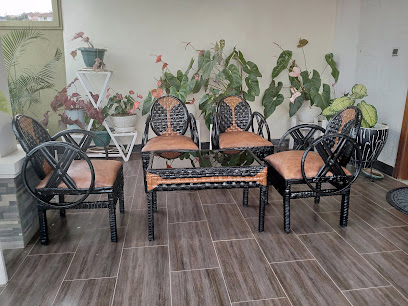
Kucyinamba-Muhanga
Explore the breathtaking beauty of Kucyinamba-Muhanga near Muhanga Dam, where nature and culture meet in harmony.

site memorial muhanga
Explore the Site Memorial in Muhanga, a moving tribute to resilience and strength in the heart of Rwanda's stunning landscapes.
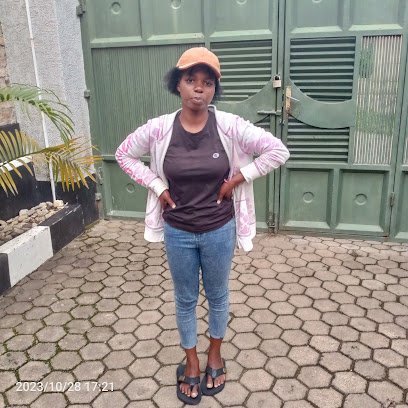
MURAMBI W'ABATANAZI
Explore Murambi W'Abatanazi, a historical landmark in Rwanda, to reflect on resilience and learn about the profound legacy of the 1994 genocide.

Unmissable attractions to see
Kigali Genocide Memorial
Explore the Kigali Genocide Memorial, a powerful tribute to resilience and peace that tells the story of Rwanda's past and hopes for a united future.
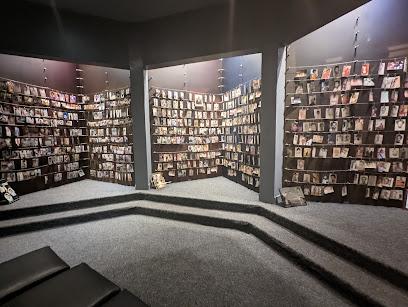
Kigali Convention Centre
Discover the architectural marvel of Kigali Convention Centre, where culture meets innovation in the heart of Rwanda.
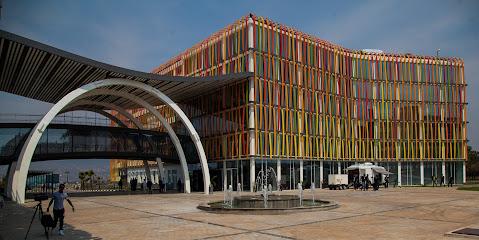
Inema Arts Centre
Explore contemporary Rwandan art and culture at Inema Arts Centre, a vibrant hub for creativity and community in Kigali.
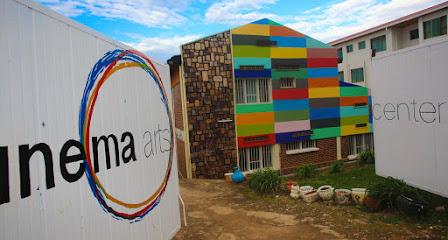
Kigali Conference and Exhibition Village (KCEV)
Explore Kigali Conference and Exhibition Village, a premier venue that embodies Rwanda's vibrant culture and modern innovation.
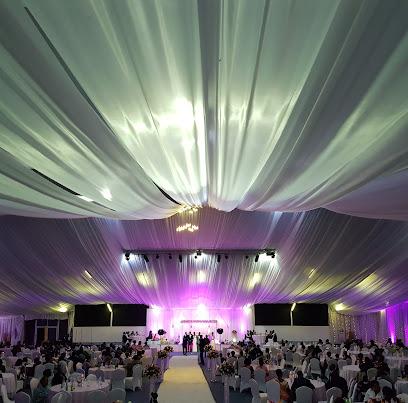
Nyungwe Forest National Park
Explore the breathtaking Nyungwe Forest National Park, a rich biodiversity hotspot in Rwanda, featuring primates, stunning landscapes, and a captivating canopy walk.
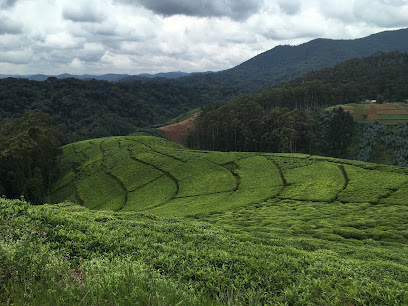
King's Palace Museum
Discover Rwanda's royal past at the King's Palace Museum in Nyanza, a captivating journey through history and culture.
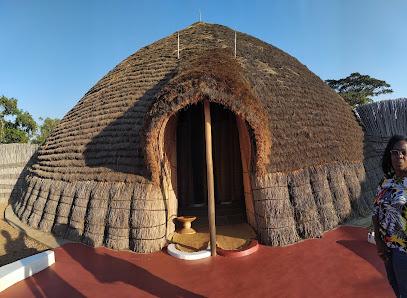
Nyandungu Urban Wetland Eco-Tourism Park
Explore Kigali's Nyandungu Urban Wetland Eco-Tourism Park, a breathtaking oasis of nature, wildlife, and sustainability in the heart of the city.
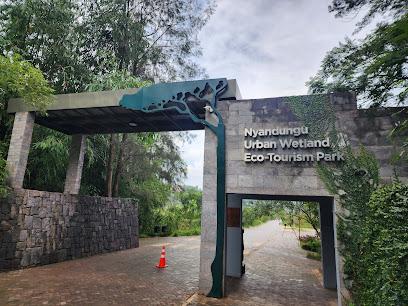
Kandt House Museum
Explore the Kandt House Museum in Kigali, a historical gem that showcases Rwanda's rich heritage and cultural narrative through captivating exhibits.
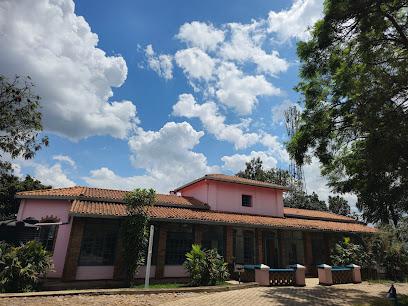
Rwanda Art Museum
Discover the vibrant tapestry of Rwandan culture at the Rwanda Art Museum, where history, art, and heritage come together in Kigali.
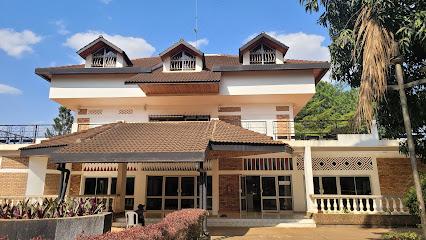
Niyo Arts Center
Experience Rwandan creativity and culture at the Niyo Arts Center, a vibrant hub of local artistry and inspiration in Kigali.
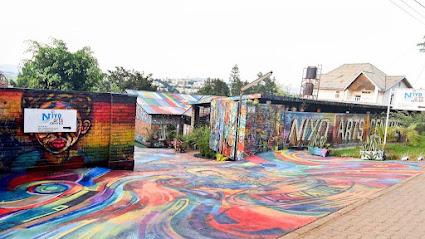
Campaign Against Genocide Museum
Explore the Campaign Against Genocide Museum in Kigali, a profound insight into Rwanda's history of resilience and the fight for peace and human rights.
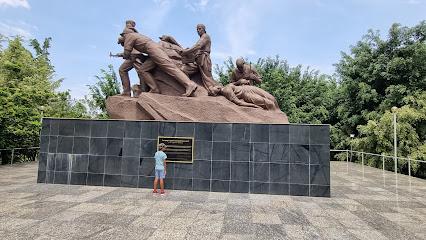
Nyamata Genocide Memorial Site
Explore the Nyamata Genocide Memorial Site, a profound tribute to resilience and remembrance in Rwanda's history, offering deep insights into the past.
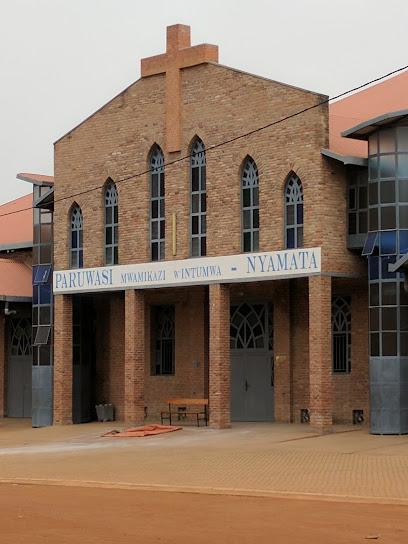
Museum of Environment
Explore the Museum of Environment in Kibuye and immerse yourself in Rwanda’s rich ecological heritage and cultural history amidst breathtaking lake views.
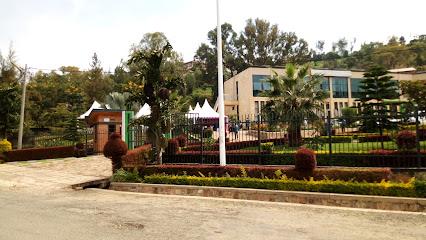
Museum of Environment
Explore Rwanda's ecological heritage at the Museum of Environment in Kibuye, a captivating journey through nature's wonders.
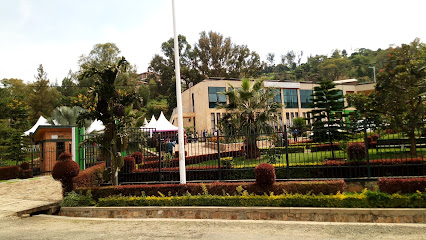
Gishwati-Mukura National Park and Biosphere Reserve
Explore the breathtaking biodiversity and stunning landscapes of Gishwati-Mukura National Park, a hidden gem in Rwanda's rich natural heritage.
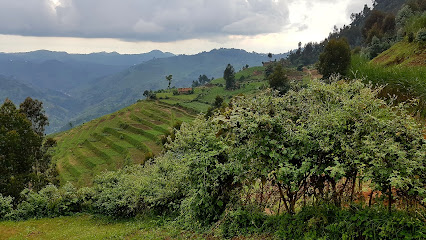
Essential places to dine
Honey Restaurant
Experience the rich flavors of Rwanda at Honey Restaurant in Kigali – where local cuisine meets warm hospitality.
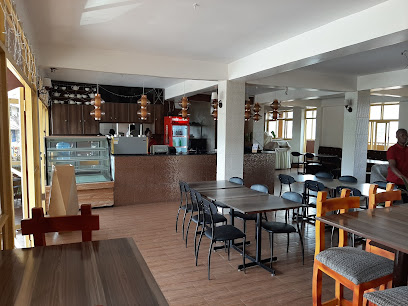
Mater Dei Motel
Experience comfort and local charm at Mater Dei Motel in Gitarama, where delightful dining meets cozy accommodations.
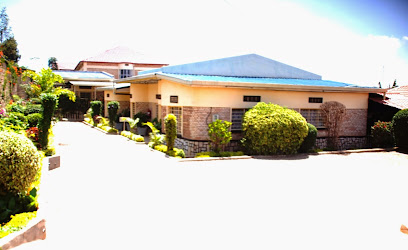
Cool Garden Restaurant
Discover Kigali's culinary gem at Cool Garden Restaurant—where delightful flavors meet stunning natural beauty.
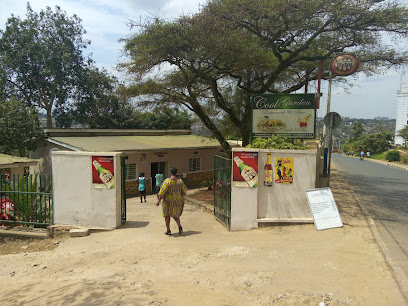
Restaurant Tranquillité
Experience authentic Rwandan cuisine in a serene setting at Restaurant Tranquillité, where every meal is crafted with love and fresh local ingredients.
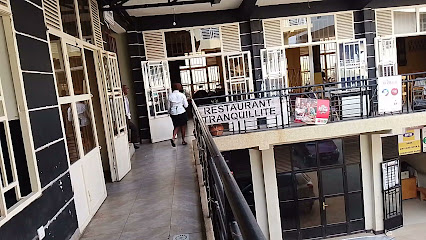
Murisanga restaurant (mama Jackie)
Experience the authentic flavors of Rwanda at Murisanga Restaurant in Kigali – where tradition meets taste.
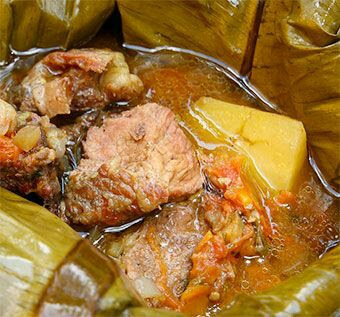
Macoco resto
Discover authentic Rwandan cuisine at Macoco Resto in Kigali – a culinary hotspot blending tradition with modern flair.
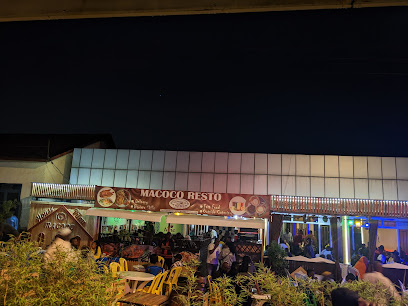
Idembe Heritage
Experience authentic Rwandan flavors at Idembe Heritage, where culinary excellence meets cultural immersion in Muhanga.
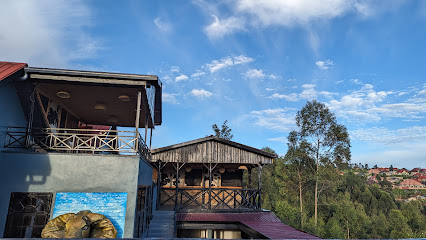
Muhanga
Explore Muhanga's culinary scene and indulge in authentic Rwandan flavors amidst stunning landscapes.
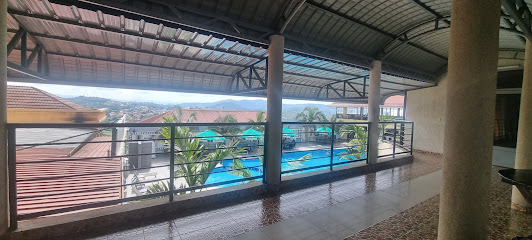
Tourism Bar
Discover authentic Rwandan flavors at Tourism Bar in Nyamabuye – where local cuisine meets warm hospitality.
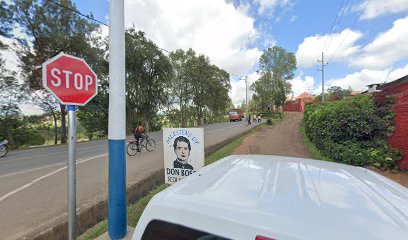
New Terasse Bar (Chez Vincent)
Discover New Terasse Bar (Chez Vincent) in Muhanga – A cozy retreat serving local flavors amidst vibrant surroundings.
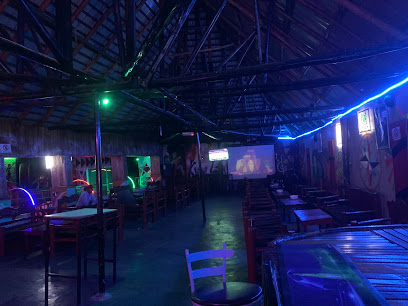
Pharaonic Restaurant & Bar
Experience authentic Rwandan cuisine at Pharaonic Restaurant & Bar - where every meal is a celebration of flavor.
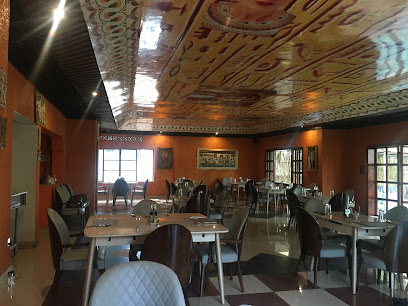
Mama Boy Restaurant
Experience authentic Rwandan cuisine at Mama Boy Restaurant in Kigali – where every dish tells a story of rich culinary heritage.
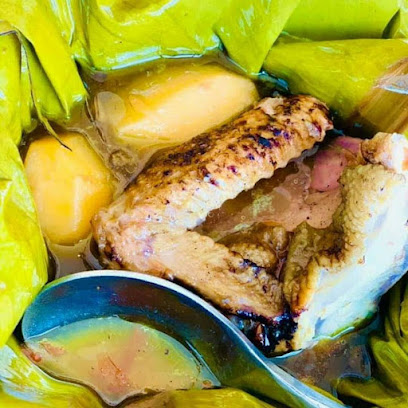
City View Restaurant
Experience authentic African cuisine with breathtaking city views at City View Restaurant - where culture meets culinary delight.
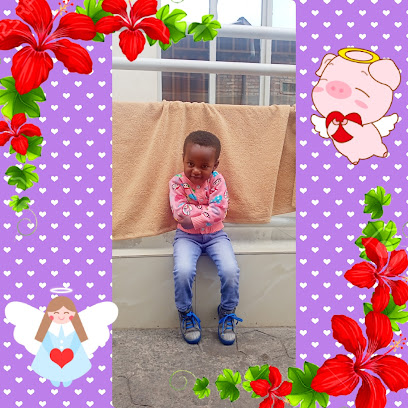
Utamu Restaurant (Shukurani)
Experience authentic Rwandan cuisine at Utamu Restaurant in Kigali—where local flavors meet warm hospitality.

PLATEAU BAR RESTO
Discover the vibrant culinary scene at Plateau Bar Resto in Muhanga, where delicious grilled specialties meet warm hospitality.
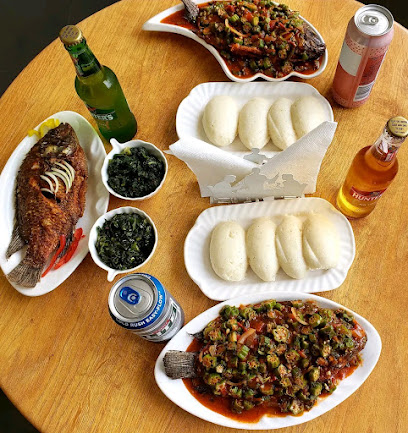
Markets, malls and hidden boutiques
Muhanga Market
Experience the vibrant culture and local flavors of Rwanda at Muhanga Market, your destination for fresh produce, unique crafts, and authentic cuisine.
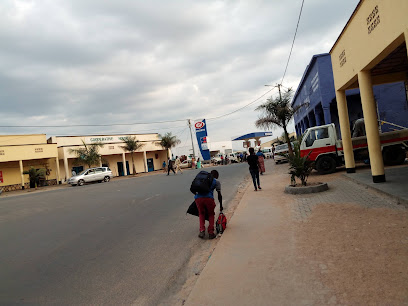
Lumina Supermaket
Explore local flavors and essentials at Lumina Supermarket in Muhanga, a vibrant hub for tourists seeking authentic Rwandan goods and experiences.
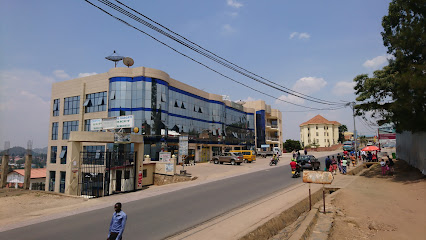
Sky studio rwanda
Sky Studio Rwanda: Your Creative Oasis for Film, Photography, and Design in Muhanga District.
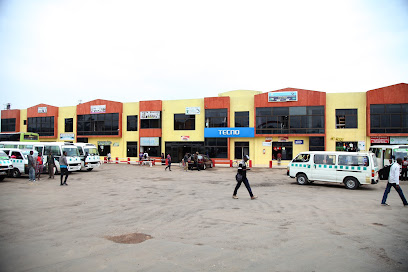
Nyabisindu Markert
Experience the pulse of Rwandan culture at Nyabisindu Market, a vibrant hub for local goods and artisan crafts.
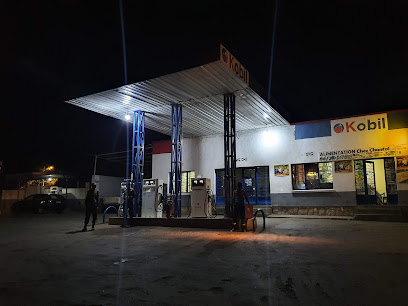
MUHANGA MODERN MARKET
Explore the lively atmosphere of Muhanga Modern Market, a vibrant hub of local culture offering fresh produce, crafts, and authentic Rwandan experiences.
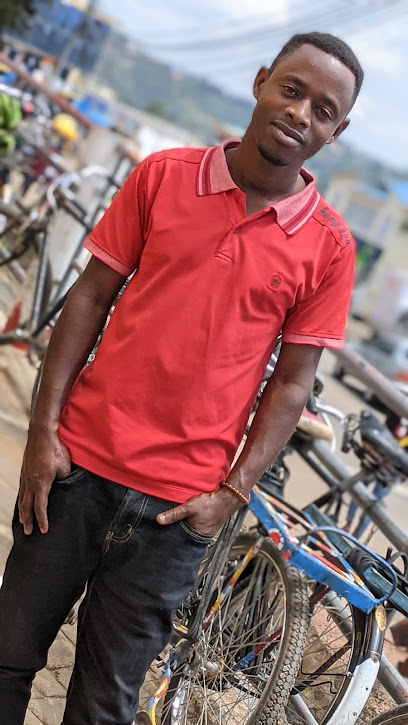
San Siro Coffehouse
Discover the cozy charm of San Siro Coffehouse, where exquisite coffee and a welcoming ambiance await in the heart of Muhanga.
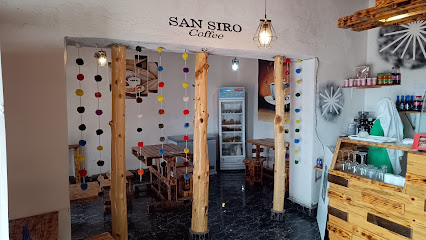
Muhanga
Explore Muhanga, Rwanda's electronic hub, blending modern technology with rich culture and stunning landscapes for an unforgettable adventure.

COPARWA Agaseke House
Experience the vibrant art and crafts of Rwanda at COPARWA Agaseke House, a must-visit destination for culturally rich souvenirs.
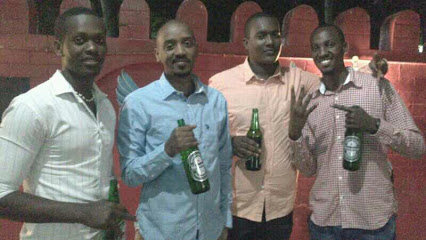
Axelle 's house
Explore Axelle's House in Muhanga for an exciting blend of local crafts and modern retail, perfect for every shopping enthusiast.
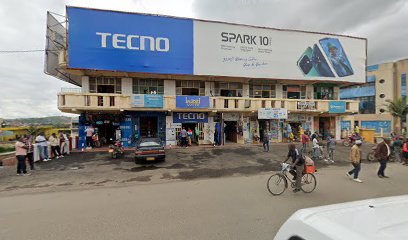
Promise Electronic Shop
Explore the Promise Electronic Shop in Muhanga for top-notch electronics and exceptional customer service, perfect for tech enthusiasts and casual shoppers alike.
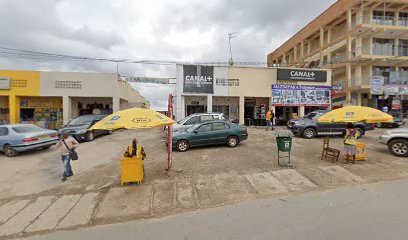
Kaze Dursaint ltd
Explore Kaze Dursaint Ltd in Nyamabuye for stunning bridal gowns and personalized service tailored for your dream wedding.
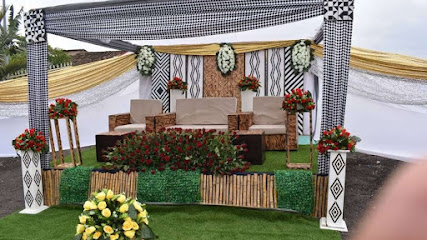
MAGARURE CENTRE
Discover the vibrant Magarure Centre, Rwanda's premier shopping mall, blending local culture and international flair in a unique shopping experience.
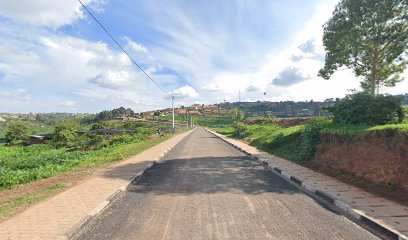
Exotica House
Explore the vibrant culture of Rwanda at Exotica House, a charming general store in Muhanga with unique local crafts and delicious treats.
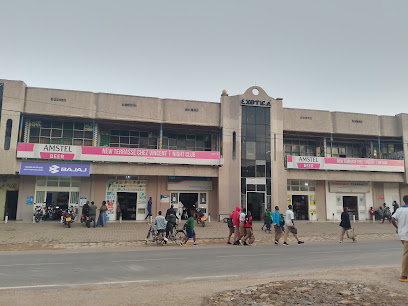
Objects D'Arts Craft Shop
Experience authentic Rwandan craftsmanship at Objects D'Arts Craft Shop, where each handmade piece tells a unique story of culture and creativity.
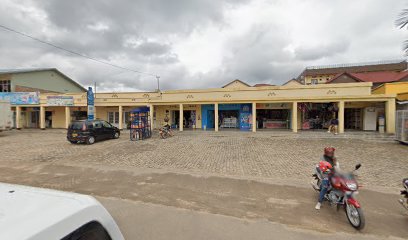
Muhanga Lucki Rice
Discover the vibrant shopping scene at Muhanga Lucki Rice, where local crafts and modern retail meet in the heart of Nyamabuye, Rwanda.
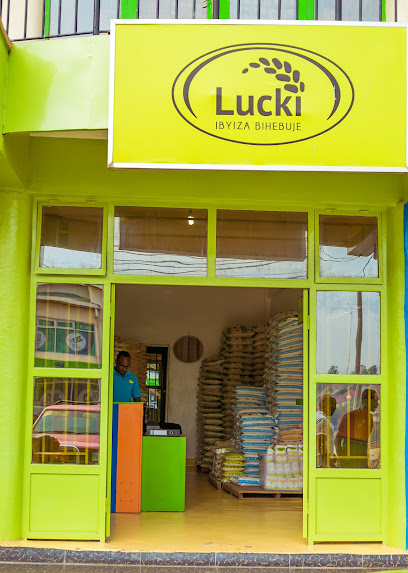
Essential bars & hidden hideouts
Mater Dei Motel
Discover the charm of Mater Dei Motel in Muhanga, where comfort meets vibrant nightlife and delectable local cuisine.
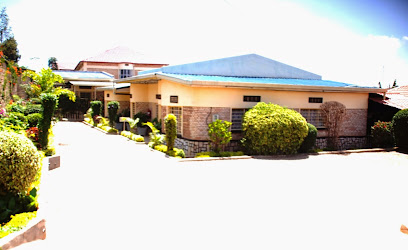
Muhanga
Explore Muhanga, Rwanda: A Culinary Gem with Diverse Dining Options and Authentic Local Flavors.
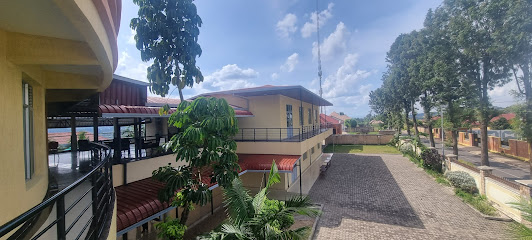
Tourism Bar
Discover the rich flavors and vibrant culture of Rwanda at Tourism Bar in Nyamabuye, where delightful dishes and a lively atmosphere await.
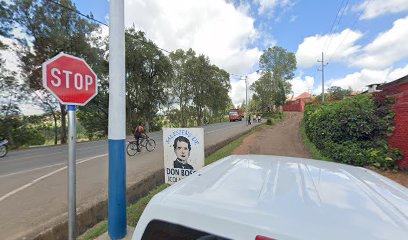
New Terasse Bar (Chez Vincent)
Discover the lively atmosphere and delicious cuisine at New Terasse Bar (Chez Vincent) in the heart of Muhanga, Rwanda.
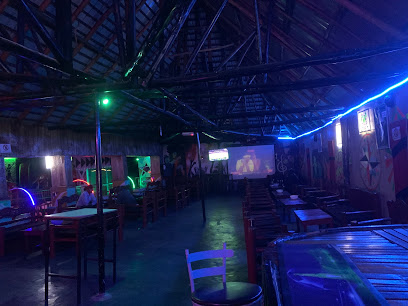
Isimbi bar
Experience the vibrant nightlife at Isimbi Bar, a cozy spot in Nyamabuye offering a taste of local culture and affordable drinks.
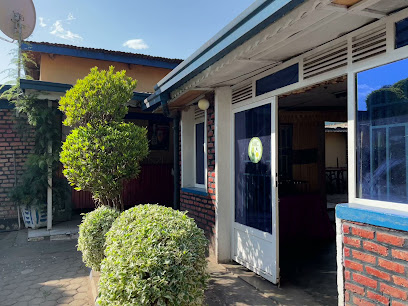
PLATEAU BAR RESTO
Discover the authentic flavors of Rwanda at Plateau Bar Resto, where grilled delights and a vibrant atmosphere await in the heart of Muhanga.
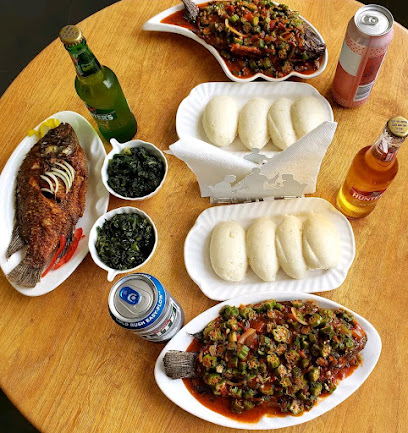
Zenitho Bar&Gill
Experience the flavors of Rwanda at Zenitho Bar&Gill, where local delicacies meet a vibrant atmosphere in the heart of Muhanga.
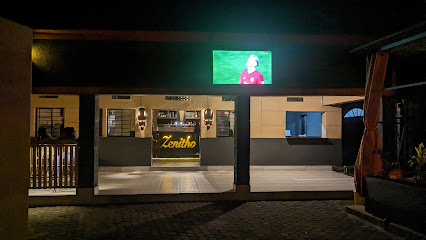
Chez Maman Kiki
Experience the vibrant Rwandan nightlife at Chez Maman Kiki, where local flavors and lively ambiance come together for an unforgettable evening.
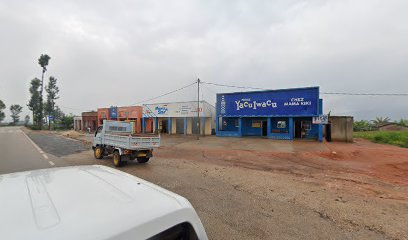
Skol Depot Muhanga
Discover the lively atmosphere at Skol Depot Muhanga, where local culture meets refreshing beverages in the heart of Nyamabuye.
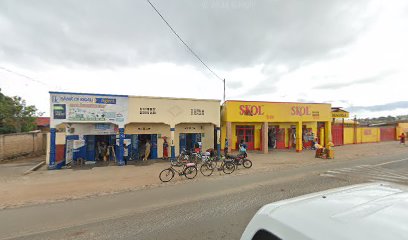
Real Afakim
Discover the vibrant nightlife of Nyamabuye at Real Afakim, where local flavors and warm hospitality come together in a lively bar atmosphere.
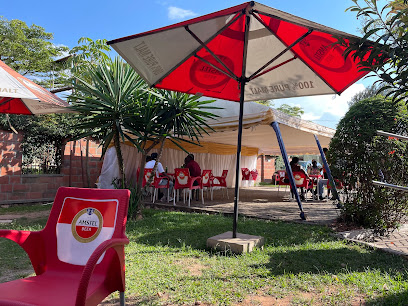
IKIREZI Bar
Experience the vibrant local culture and unwind with delightful beverages at IKIREZI Bar in Ruhango, a must-visit destination for every traveler.
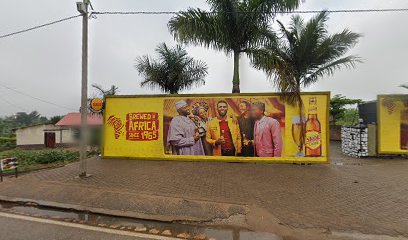
مطعم
Experience the warmth of family dining in Muhanga with delicious local and international cuisine in a cozy atmosphere.
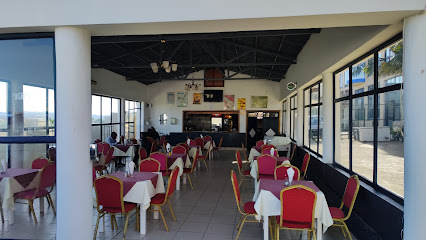
Home Corner Bar
Discover the vibrant atmosphere of Home Corner Bar in Muhanga, where local culture meets lively entertainment for an unforgettable experience.
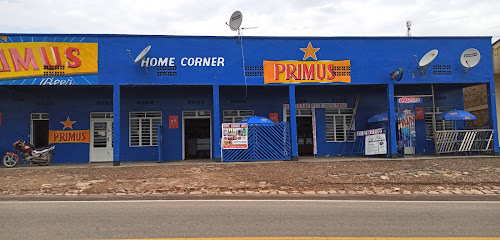
Edward Bar and Restaurant
Discover the flavors of Rwanda at Edward Bar and Restaurant, where local cuisine meets a warm atmosphere in the heart of Muhanga.
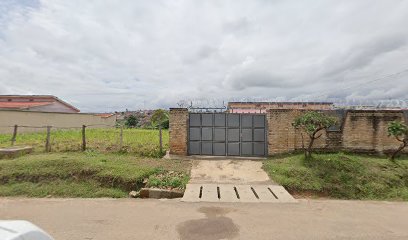
Local Phrases
-
- HelloMuraho
[moo-rah-ho] - GoodbyeMurabeho
[moo-rah-bay-ho] - YesEego
[ay-go] - NoOya
[oh-ya] - Please/You're welcomeNagasore
[nah-gah-sor-ray] - Thank youMurakoze
[moo-rah-koh-zay] - Excuse me/SorryIgisubizo
[ee-gi-soo-bee-zoh] - How are you?Amakuru?
[ah-mah-koo-roo] - Fine. And you?Ni meza. Wowe?
[nee may-zah. woh-way] - Do you speak English?Wandika english gusa?
[wahn-dee-kah english goo-sah] - I don't understandNtazi
[en-tah-zee]
- HelloMuraho
-
- I'd like to see the menu, pleaseNifashishije kureba menu, cyane
[nee-fah-shee-shee-jay koo-reh-bah meh-noo, ch-ya-nay] - I don't eat meatSinziba inyama
[seen-zee-bah ee-nya-mah] - Cheers!Mwaramutse!
[m-wah-rah-moo-tsay] - I would like to pay, pleaseNifashishije kubona, cyane
[nee-fah-shee-shee-jay koo-boh-nah, ch-ya-nay]
- I'd like to see the menu, pleaseNifashishije kureba menu, cyane
-
- Help!Ubutware!
[oo-boot-wah-ray] - Go away!Subira!
[soo-bee-rah] - Call the Police!Andika polisi!
[ahn-dee-kah poh-lee-see] - Call a doctor!Andika daktare!
[ahn-dee-kah dahk-tah-ray] - I'm lostNarashize
[nah-rah-shee-zay] - I'm illNzira
[en-zee-rah]
- Help!Ubutware!
-
- I'd like to buy...Nifashishije kugura...
[nee-fah-shee-shee-jay koo-goo-rah] - I'm just lookingNzakora gusa
[en-zah-koh-rah goo-sah] - How much is it?Ni iki kibazo?
[nee ee-kee kee-bah-zoh] - That's too expensiveNi byinshi
[nee bee-yin-shee] - Can you lower the price?Mwifurije ubwenge?
[m-wee-foo-ree-jay oob-wen-gay]
- I'd like to buy...Nifashishije kugura...
-
- What time is it?Saa ngapi?
[sah nah-gah-pee] - It's one o'clockNi saa rimwe
[nee sah reem-way] - Half past (10)I saa ishize ya (10)
[ee sah ee-shee-zay yah] - MorningUmugoroba
[oo-moo-go-roh-bah] - AfternoonIgihe cy'umugoroba
[ee-gee-hay chee-oo-moo-go-roh-bah] - EveningI saa ya saha
[ee sah yah sah-hah] - YesterdayEjo
[ay-joh] - TodayEjo
[ay-joh] - TomorrowEjo
[ay-joh] - 1Rimwe
[reem-way] - 2Kabiri
[kah-bee-ree] - 3Gatatu
[gah-tah-too] - 4Kane
[kah-nay] - 5Gatanu
[gah-tah-noo] - 6Gatandatu
[gah-tahn-dah-too] - 7Karindwi
[kah-reen-dwee] - 8Umunani
[oo-moo-nah-nee] - 9Icyenda
[ee-chyen-dah] - 10Icumi
[ee-choo-mee]
- What time is it?Saa ngapi?
-
- Where's a/the...?Ejo he?
[ay-joh hay] - What's the address?Ibikoresho by'iyo arihehe?
[ee-bee-koh-ray-shoh bee-yoh ah-ree-hay-hay] - Can you show me (on the map)?Wifuza kundika (muri iyi ramapu)?
[wee-foo-zah koon-dee-kah moo-ree ee-ree-rah-mah-poo] - When's the next (bus)?Igihe cya bus ikurikira?
[ee-gee-hay ch-ya boos ee-koo-ree-kee-rah] - A ticket (to ....)Igiciro (kuri ....)
[ee-gee-chee-roo koo-ree]
- Where's a/the...?Ejo he?
History of Muhanga
-
Long before the advent of colonial rule, the area now known as Muhanga was home to various Rwandan kingdoms. The region was rich in cultural heritage and traditional practices. The indigenous people, primarily from the Hutu and Tutsi ethnic groups, engaged in farming, cattle rearing, and trade. Oral traditions and folklore played a significant role in preserving the history and culture of the area.
-
During the late 19th and early 20th centuries, Rwanda was colonized first by Germany and later by Belgium. Muhanga, like much of Rwanda, experienced significant changes under colonial rule. The Belgians implemented administrative reforms and introduced European-style education and Christianity. The town of Gitarama (now Muhanga) became an important administrative center during this period.
-
Muhanga played a crucial role in the struggle for Rwandan independence. The town was a focal point for political activism and the organization of nationalist movements. In 1962, Rwanda gained independence from Belgium, and Muhanga continued to be a significant political and cultural hub in the newly independent nation.
-
The tragic events of the 1994 Genocide against the Tutsi had a profound impact on Muhanga. The region witnessed horrific violence and loss of life, as well as acts of heroism and resilience. Memorials and museums in and around Muhanga today serve as poignant reminders of this dark chapter in Rwanda's history, and they play a vital role in education and reconciliation efforts.
-
Following the genocide, Muhanga, like much of Rwanda, embarked on a path of reconstruction and development. The town has seen significant growth in infrastructure, education, and healthcare. Efforts to promote unity and reconciliation have been central to the region's recovery. Muhanga is now a vibrant community with a growing economy and a focus on sustainable development.
-
Muhanga is rich in cultural heritage, with traditional music, dance, and crafts playing a vital role in the community's cultural life. The town hosts various festivals and events that celebrate Rwandan culture and history. Notable among these is the annual 'Umuganura' festival, which is a traditional celebration of the first harvest and a time for community gathering and thanksgiving.
-
Muhanga boasts several tourist attractions and landmarks that reflect its historical and cultural significance. The Kabgayi Basilica, one of the oldest cathedrals in Rwanda, is a major historical site. The Muhanga Cultural Center offers visitors a glimpse into the region's rich cultural heritage through exhibits and performances. Additionally, the lush landscapes and scenic views make Muhanga a beautiful destination for travelers.
Muhanga Essentials
-
Muhanga is located in the Southern Province of Rwanda. The nearest international airport is Kigali International Airport, approximately 51 kilometers away. From Kigali, you can take a taxi or a bus to Muhanga. The journey typically takes around 1 to 1.5 hours by road, depending on traffic conditions. Buses are frequent and affordable, making them a popular choice for both locals and tourists.
-
Muhanga is a relatively small town, and many of its attractions are accessible on foot. For longer trips, local taxis and moto-taxis (motorcycle taxis) are readily available and reasonably priced. Public buses operate within the town and connect to nearby villages. Renting a car can also be an option for those who prefer to explore at their own pace. Bicycles are another eco-friendly way to get around and enjoy the scenic routes.
-
The official currency in Rwanda is the Rwandan Franc (RWF). Credit cards are accepted in some hotels, restaurants, and larger shops, but it is advisable to carry cash, especially in smaller establishments and rural areas. ATMs are available in Muhanga, but it is wise to withdraw sufficient cash in Kigali before traveling to ensure you have enough funds.
-
Muhanga is generally a safe destination for tourists. However, as with any travel location, it is advisable to take standard precautions. Avoid walking alone at night in unfamiliar areas and keep an eye on your belongings in crowded places. While Muhanga does not have specific high-crime areas targeting tourists, it is always best to stay vigilant and aware of your surroundings.
-
In case of emergency, you can dial 112 for immediate assistance. Muhanga has local police stations and medical facilities available. It is recommended to have travel insurance that covers medical emergencies. For minor health issues, there are pharmacies in the town where you can purchase over-the-counter medications. The main hospital in Muhanga is Kabgayi Hospital, which provides various medical services.
-
Fashion: Do dress modestly, especially when visiting religious sites. Avoid wearing revealing clothing. Religion: Do respect local customs and traditions. Always be respectful when discussing religion and avoid making insensitive comments. Public Transport: Do be respectful and give up your seat to elderly passengers. Don’t eat or drink on public transport. Greetings: Do greet people with a handshake and a friendly smile. Using a few words in Kinyarwanda, like 'Muraho' (Hello), is appreciated. Eating & Drinking: Do try local delicacies and accept food offerings graciously. Don't refuse hospitality, as it is considered impolite.
-
To experience Muhanga like a local, visit the local markets such as Muhanga Market, where you can buy fresh produce and traditional Rwandan goods. Engage with locals, as they are often friendly and willing to share stories about the town's history and culture. Don’t miss visiting local attractions such as the Kabgayi Basilica, a significant religious site. For a unique experience, participate in community events or traditional dance performances to immerse yourself in the local culture.
Nearby Cities to Muhanga
-
Things To Do in Karongi
-
Things To Do in Kigali
-
Things To Do in Kibuye
-
Things To Do in Nyamata
-
Things To Do in Butare
-
Things To Do in Ruhengeri
-
Things To Do in Rubavu
-
Things To Do in Kirundo
-
Things To Do in Gisenyi
-
Things To Do in Ngozi
-
Things To Do in Kayanza
-
Things To Do in Muyinga
-
Things To Do in Nyagatare
-
Things To Do in Cibitoke
-
Things To Do in Muramvya





